After massive changes in the reservation system in Jammu and Kashmir, the open meir basket has squeezed to an all-time low. For a place where unemployment is already a major issue, the undoing of the level playing field may add to the crisis in youth bulge, reports Babra Wani
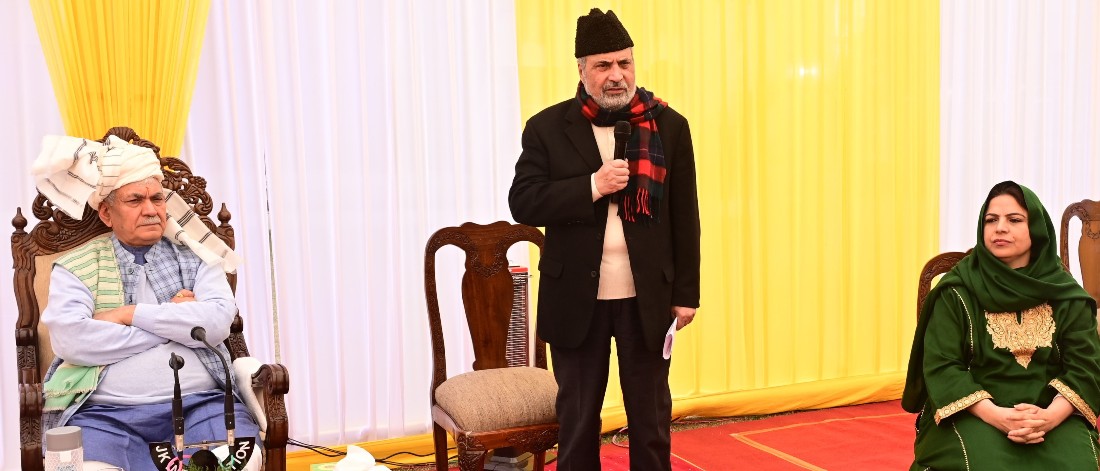
For Nasir, a resident of North Kashmir, things started turning blue when he opened a link forwarded by one of his friends. His face changed colour as he started narrating the story.
“My hands started trembling as I read that the recently added Pahari community have been given separate 10 per cent reservation and my chance at finding a government job have narrowed down further,” Nasir, who is currently preparing for the civil services examination said. “I was like why is this happening? As an aspirant, the government’s announcement of further reservations in government examinations is a disappointing setback. While diversity and inclusivity are crucial, meritocracy should remain the cornerstone of civil service.”
Nasir added that this move risks diluting the quality and competence of the public institutions. “True progress lies not in dividing opportunities but in fostering an environment where every individual, regardless of background, can thrive based on their capabilities and hard work.”
With a shaking voice, he continued. “Taking away the level playing field for aspirants who have been working and preparing hard for so much time is an absolute injustice. This diminishes the value that these exams hold.”
Open Merit Squeeze
Jammu and Kashmir now has less than 40 per cent of seats for candidates in open merit. “That is something which is to be worried about,” Nasir asserted.
Nasir’s concerns stem from the Manjoj Sinha administration’s latest decision to raise the reservations under the Scheduled Tribe category by 10 per cent, which in return has left the general category with less than 40 per cent berths. Nasir and other aspirants like him are visibly worried and concerned about their future as 75 per cent of the population falls under the general category.
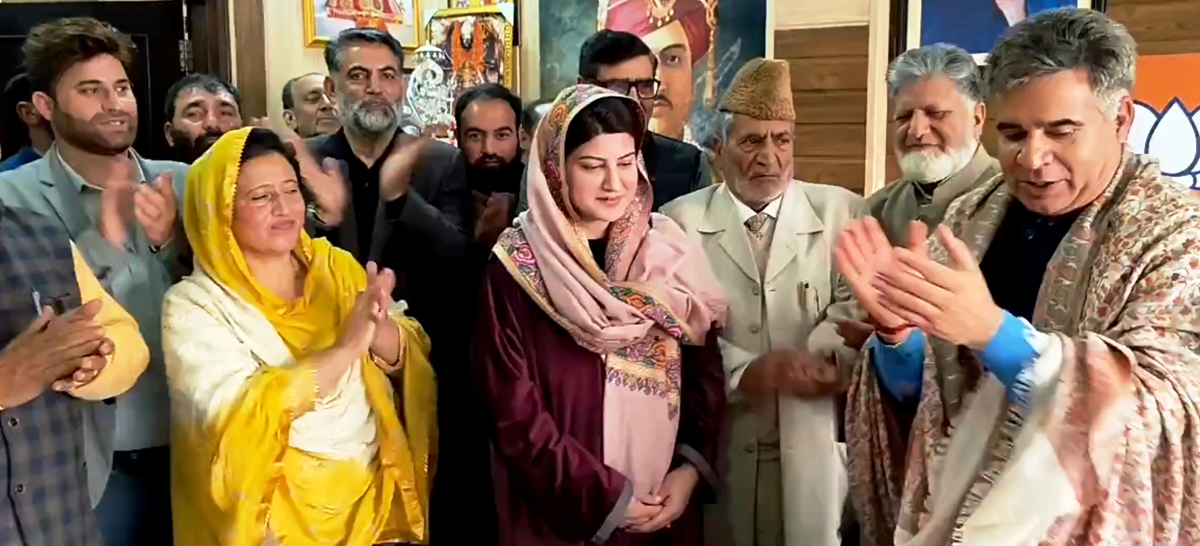
This comes after the Jammu and Kashmir Reservation Act of 2004 was amended and the newly added Pahari Ethnic Group (PEG), Padari Tribe, Kolis and Gadda Brahmins were included in the Scheduled Tribes (ST) list and were provided with a separate 10 per cent reservation, which in turn has resulted in the further exhaustion of the Open Merit quota.
The move has not settled well with the Kashmir residents, especially in the younger generation.
Another aspirant, Jehangir Ahmed, from South Kashmir while expressing his anger stated that the move has left job seekers and aspirants like him depressed. “Open Merit has now itself become a category. Look at the scenario, the total per cent of reservations under these reserved categories sums up to almost 63 per cent and we the candidates fighting for seats under Open Merit have been left with just 37 per cent, a big joke right?”
Echoing Jehangir’s thoughts Nasir stated, “The move is more politically motivated and it is downright clear. If till now there was no such need for doing this, why suddenly today right before the elections? This sounds more like a politically motivated move rather than anything else,” he insisted.
The original reservation act passed in 2005, was primarily concerned with giving Scheduled Tribes (ST), Scheduled Castes (SC), ALCs (Line of Actual Control), and RBAs (Residents of Backward Areas) special quotas. Since the name OBC, or Other Backward Classes, had not yet been created, these tribes were referred to as Socially and Economically Backward Classes.
In 2019, the Indian Constitution Amendment Act 103 was approved and a 10 per cent reservation was introduced for the Economically Weaker Sections (EWS) across India and in Jammu and Kashmir as well after the abrogation of Article 370, amending Article 16. When the reservation was provided, it was an additional 10 per cent to the existing 50 per cent reservation of ST, SC, and the OBC, thus resulting in a 60 per cent total reservation. However, here in Jammu and Kashmir, the reservation quota of EWS was added by reducing RBA’s reservation by 10 per cent.
The Background
After EWS, Paharis were added under the reservation quota too, resulting in widespread protests from the Gujjar Community of Jammu and Kashmir as they thought their rights were being trampled. Many of the Gujjar leaders also called the move, “politically motivated.” The BJP government consistently insisted that the government will not compromise any of the rights the Gujjas and Bakerwals are having. Instead, the Paharis would get a new quota.

It eventually happened. Now, a separate reservation has been provided to the Paharis, a huge linguistic group comprising Muslims, Hindus and other faiths across Jammu and Kashmir.
It will have a huge impact on the ground. “Ultimately Kashmiri people not only in Kashmir but in other districts from Pir Panchal or Chenab Valley regions will have to take the hit,” acknowledged an ex-bureaucrat from Kashmir who has also formerly chaired the Public Service Commission. “The overall process is highly debatable if we see how it was carried out.”
The officers said that the mechanism that led to this intervention is flawed. “The basic concept of granting Scheduled Tribe or any other reservation category is that the tribe must adhere to five rules, five eligibility criteria. The criteria was fixed by a commission,” the officer said.
Flawed Mechanism
In the case of Pahari, he said sections within them have Persian or Arab origins, which technically disqualifies them. “People who have migrated from Kashmir to Poonch or Rajouri and have started speaking Pahari does not entitle them to reservations. Same is the case with the Dogras of Jammu who are not Paharis,” he said. “Gadda Brahmins and Paddris are Dogras. Jatts were included in the backward category, but basically, they were landlords. How can landlords be economically backward? In getting the backward category reservation one needs to adhere to certain criteria like social backwardness and economic backwardness. Jatts may be socially backward but not economically.”
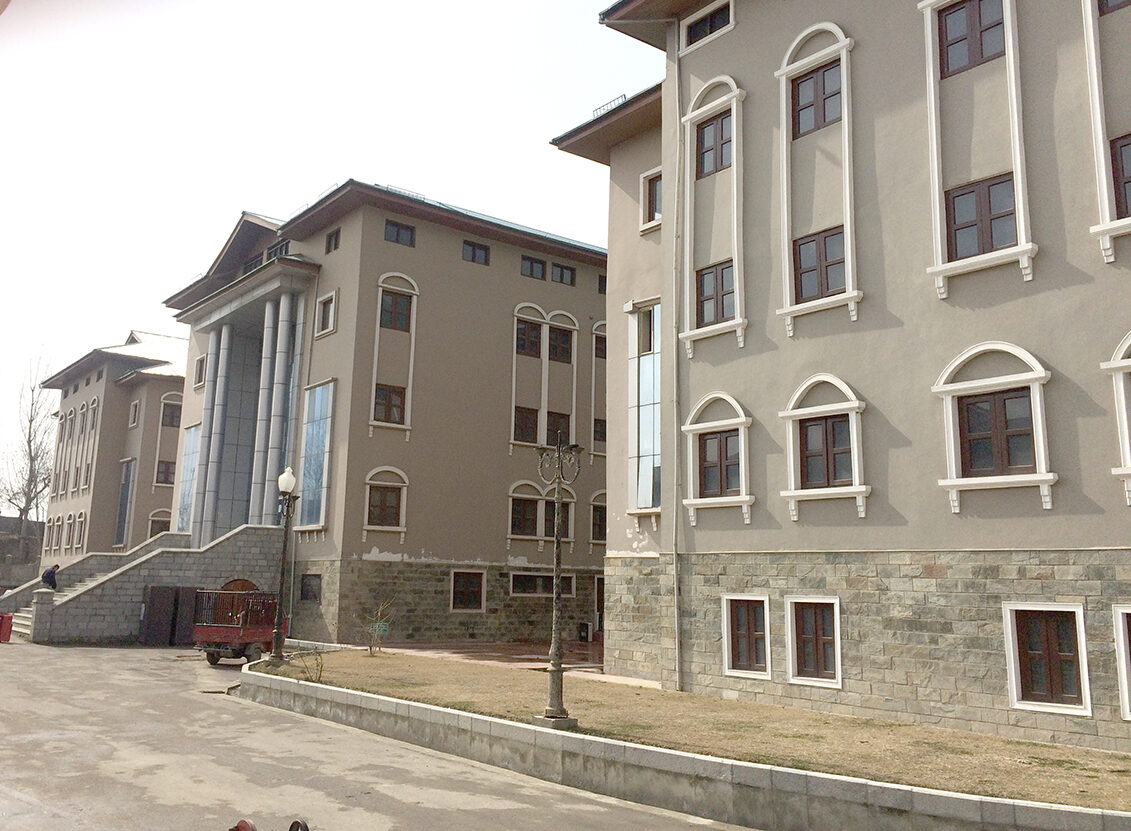
As the government included newer groups to the reservation list, there will be more demands in the coming days. The use of sub-categorisation in ST will now have demands by certain sections within the SC category to seek a similar right. Within the SC there are 10 subcategories and some of them may have genuine grievances that their rights have been usurped. 40 sub-categories are falling under OBC.
So, “it is not that easy. Going for subcategorisation under STs, they have to face the music from other categories as they face similar issues as well, particularly in favour of those who have not benefitted largely through the reservation,” the former PSC chairperson retreated.
The Current Status
Right now, the reservation list is a longish one. Scheduled Castes (SC) have eight per cent reservations. Scheduled Tribes (ST) have 20 per cent reservation – half with Gujjar and Bakerwal and half with Pahri-speaking people (PSP). Economically Weaker Sections have 10 per cent reservation. Residents of Backward Area (RBA) have a 10 per cent reservation. Other Backward Classes (OBC) including 15 new castes have eight per cent reservations. Besides, people living on the actual line of control (ALC) and International Border (IB) have four per cent reservation. This makes up forty per cent of the opportunities. There is a further reduction in the quota for open merit candidates when considering the horizontal reservations (3% + 6%). Under the horizontal reservations, four per cent are for persons with disabilities, three per cent for children of defence personnel, one per cent for the children of paramilitary personnel and police and two per cent for candidates possessing outstanding proficiency in sports.
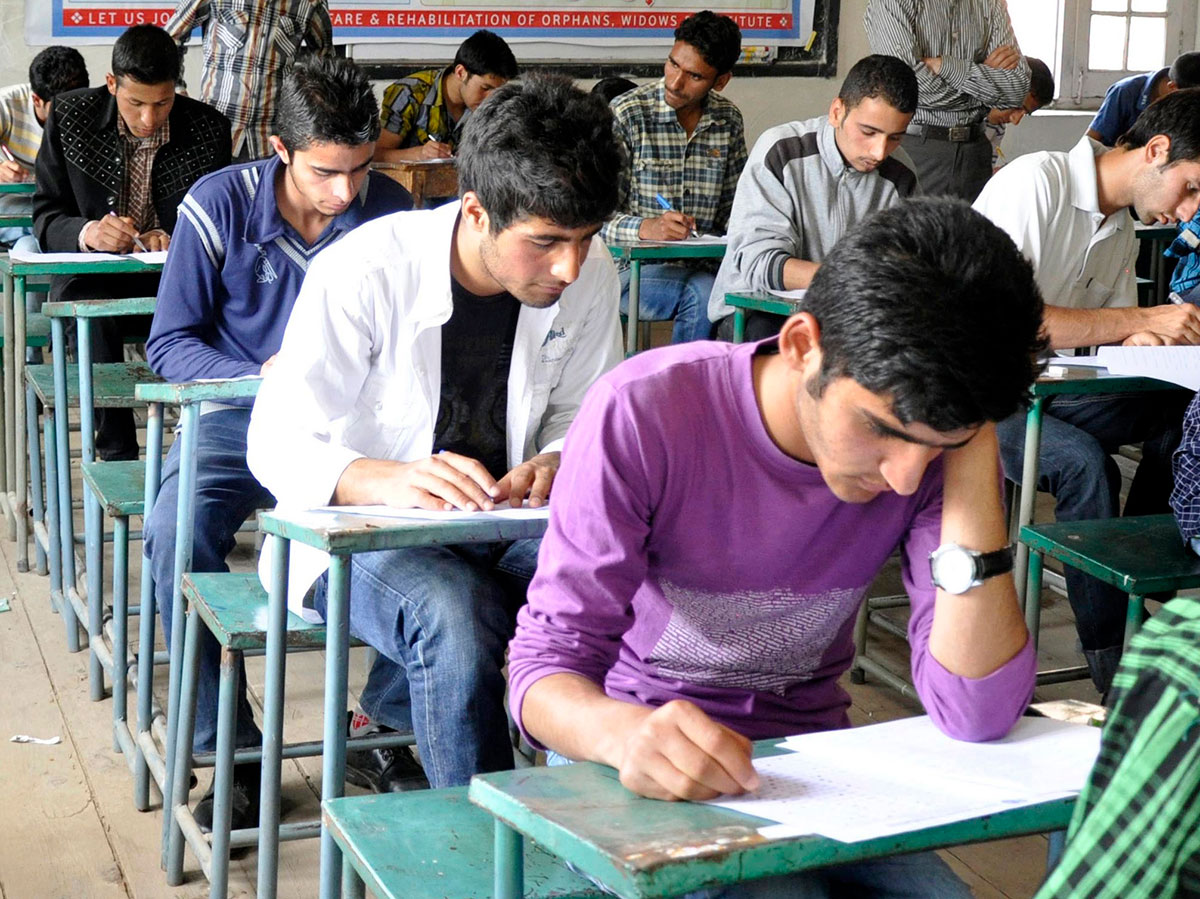
Before this, Jammu and Kashmir had 46 per cent of opportunities reserved. These included eight per cent for SC, 10 per cent for STs, four per cent each for OBCs, and people living along the Line of Actual Control/International Border, and 10 per cent each for residents of the Backward Area (RBA), and Economically Weaker Sections (EWSs).
The Crisis
The open merit category is fifty per cent. However, any candidate who qualifies for an examination in open merit will cease to claim his reservation right under the category he or she belongs to. People with reservations have everything open for them. They do their best in the examination and make it in open merit. If they do not fall in open merit, they surely will make it under the quota.
This leaves a vast population of Jammu and Kashmir competing in the open merit category. “Dogras are better placed in comparison to Kashmiri,” the officer said. “A huge population in Jammu has a huge basket other than open merit – RBA, OBC, LAC, IB, SC, ST, or ex-servicemen etc categories. Kashmir is lacking most of it.” Eventually, it is the Kashmiri candidate competed with every other resident in Jammu and Kashmir for a job. He or she is entitled to only 40 per cent where they must make it. The officer foresees “tough times” for Kashmiri youth in the coming days.
Frustration
Reservations have remained a major issue within Jammu and Kashmir and outside. There are certain states in India where almost eight per cent of the jobs are reserved for various categories. The latest intervention has added to the frustration that youth are exhibiting at a place where jobs are scarce in the private and public sectors.
Shabir Ahmad, a job seeker, and an engineer by education, said the recent decision has “murdered” the OM category. “The percentage of reservation needs to be lowered only when the systematic discrimination against marginalised communities decreases in our society. The prevalent casteism in our society is becoming harsher with time,” he said. “People from the “general” category cribbing about the increase in reservation need to read about the ill effects of casteism, of which they would not have any first-hand experiences. Reservation is not a poverty alleviation system, it is about representation in all aspects of civil society. The onus of decreasing these ill effects is on the majority, not on the marginalised communities.”
In Rajouri
Within days after the government formally granted the reservation right to the PSP, the process of issuing the certificates has already begun. Normally after such an intervention takes place, it takes months to generate the necessary mechanism for issuing such certificates. However, in the PSP case, it has been historically quick.
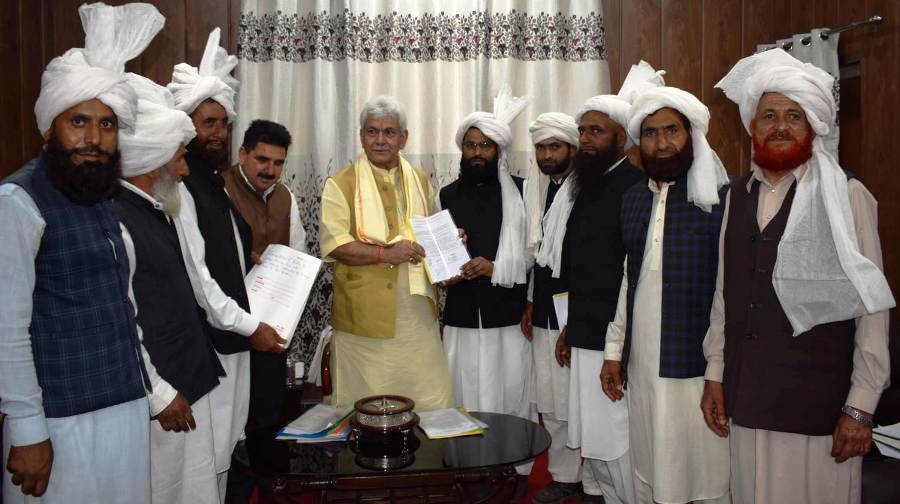
Reports appearing in the media said that the Revenue Department has started issuing the certificates. The first certificate that was issued became an internet sensation. Now demands are up that the process should be simple and the government must receive applications online and issue the certificates as fast as possible.
Reports indicate that the basic documents which are being sought from the applicants include the ration card, domicile certificate, aadhar card and a revenue extract. Tehsildar, however, can ask for more information.
The Problem
In recent years the people of Jammu and Kashmir has been facing the crises of serious unemployment. “Even the private sector in Jammu and Kashmir is not thriving a lot and we have limited opportunities here,” said Bisma, a resident of Srinagar who is currently applying for different government posts. “I completed my graduation six years ago and I am still looking for a job opportunity and now with the additional decrease from the OM, I have become hopeless.”
According to the Ministry of State for Labour and Employment an estimated Unemployment Rate in Jammu and Kashmir was 22.8 per cent during 2021-22, which in 2022-23 fell to 18.3 per cent. However, a considerable number of the population are looking for employment opportunities. “Reducing the open merit quota may make it more competitive for the few seats among non-reserved category candidates, which could incite resentment and a sense of unfairness among people.”
An Emerging Issue
Reservations have always remained a touchy issue everywhere. In Jammu and Kashmir, however, it was not seen as a major issue as certain tribes and castes were unfairly being treated by the system and the reservations were helpful.
Kashmir, for instance, has no SC population. So all selections for jobs were devoid of this particular reservation category. Then things started changing and the government decided that all district positions should have SC positions filled from areas, even if they do not belong to the place where they are supposed to serve.
After 2019, the reservation mechanism was interrupted. The inclusion of PSPs with a cut of ten per cent has taken another major chunk from open merit in admissions and jobs and squeezed the merit basket.
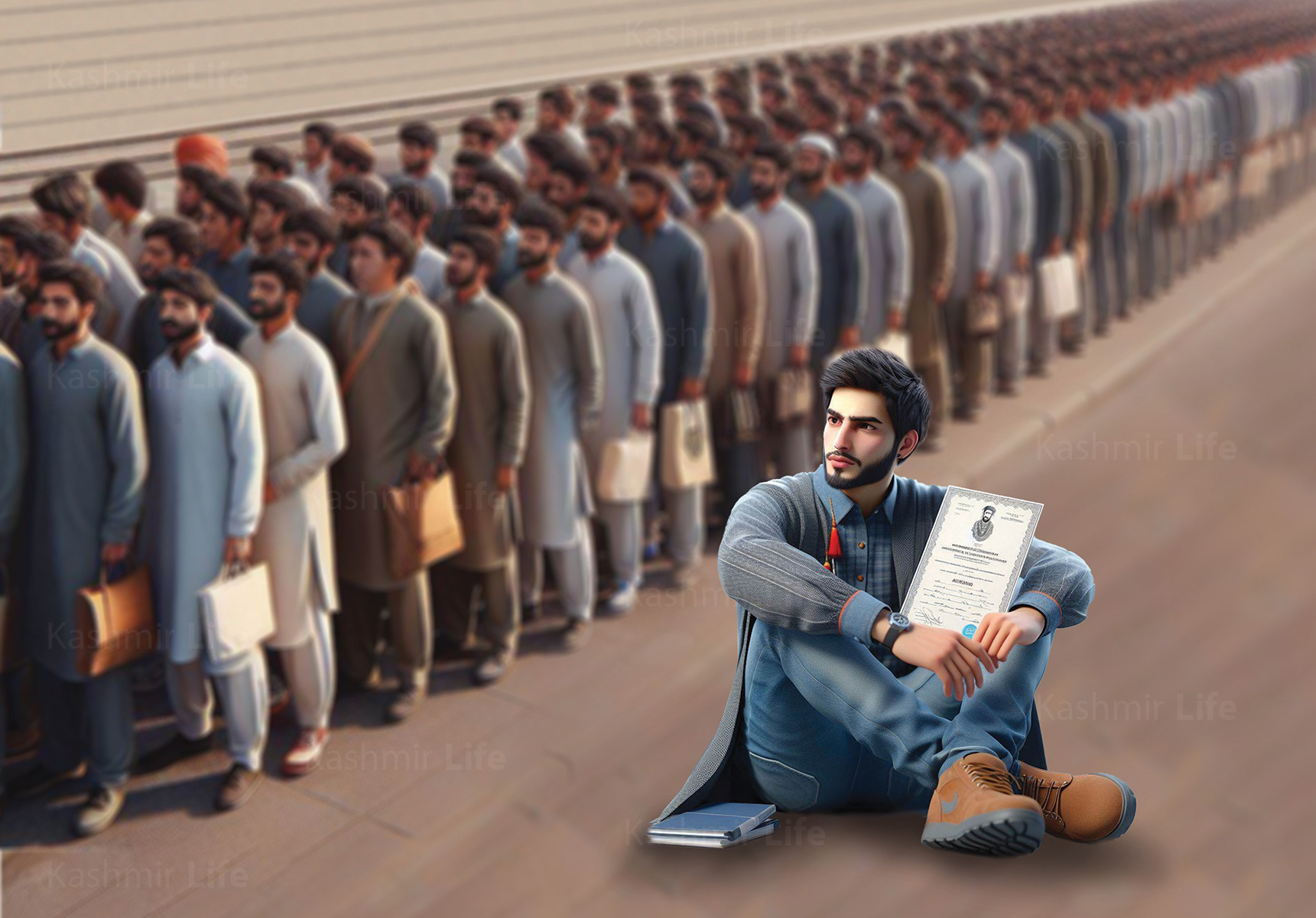
Time Factor
The interruptions in the reservation system came at a time when Jammu and Kashmir is being ruled remotely by the central government. The Jammu and Kashmir assembly is in a protracted sleep and there is no one from Jammu and Kashmir in the decision-making process. Within days after the PSPs were granted the reservation, top leaders from the linguistic group started bee-lining the BJP leaders and formally joined the party. These included some former ministers and lawmakers.
PSP reservation has been on the table in Jammu and Kashmir for years and every time a proposal was sent to the central government, it was not taken seriously, according to a series of statements that leaders of JKNC and JKPDP made in the last year. Now it happened over a few months and new politics is emerging in Jammu and Kashmir.
Quick Decision Making
Earlier, the Social Welfare Department had proposed to the Manoj Sinha-led administration to grant the newly inducted tribes separate reservation quota and amend the Jammu and Kashmir Reservation Rules, 2005 keeping in consideration the Jammu and Kashmir Reservation (Amendment) Act, 2023, Constitution (Jammu & Kashmir) Scheduled Castes Order (Amendment) Act, 2024, Constitution (Jammu & Kashmir) Scheduled Tribes Order (Amendment) Act, 2024 and recommendations of Jammu and Kashmir Socially and Educationally Backward Classes (SEBC) Commission, 2020.
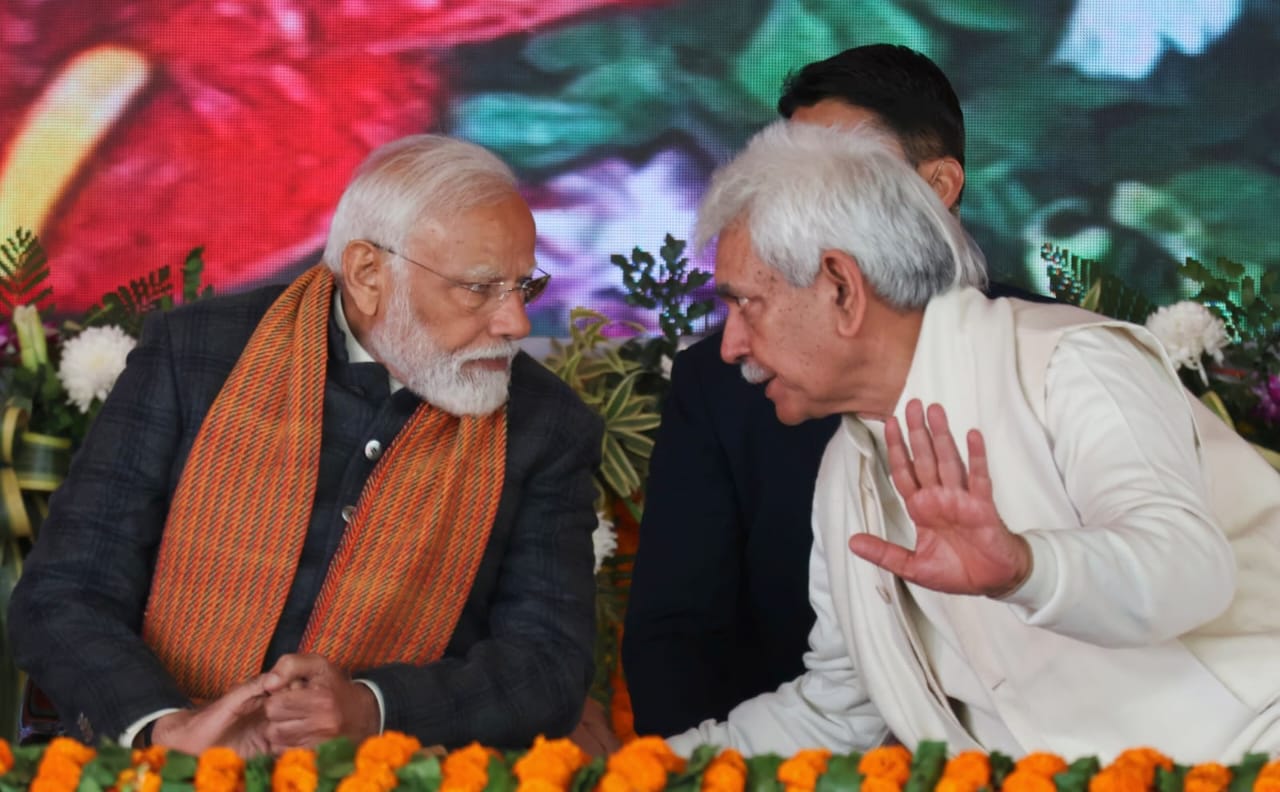
LG Manoj Sinha approved the plan in the Administrative Council he presided. The decision envisaged adding 15 new castes in the Other Backward Classes (OBCs) enhancing the reservation quota under the category to eight per cent.
“In light of the addition of four new tribes i.e. Pahari Ethnic Group, Paddari Tribe, Kolis and Gadda Brahmins, to the Scheduled Tribes Order as applicable to the Jammu and Kashmir by the Parliament, the Administrative Council approved 10 per cent reservation in favour of newly added tribes taking the overall reservation for STs to 20 per cent,” a Raj Bhawan spokesman said after the decision-making.
About enhancing the reservation quota under the OBC category to eight per cent, the spokesman stated: “The Council also approved the addition of 15 new castes in OBCs and enhancement of reservation in favour of OBCs to 8 per cent, which will meet the long pending demand of the OBC category in the UT. It also approved a change in nomenclature and synonymy of some castes as recommended by the SEBC Commission.”
During the meeting, the replacement of “physically challenged persons” or “handicapped” in all instances throughout the rules with “persons with disabilities,” by the 2016 Rights of Persons with Disabilities Act, was also approved.
The OBC category, it may be recalled here, did not exist in the erstwhile state of Jammu and Kashmir. Instead of OBC, there was an Other Social Castes (OSCs) category with four per cent reservation quota. People falling under the RBA category enjoyed 20 per cent reservation, which after the abrogation was reduced by half.
The communities that were added to the OBC included Waghey (Chopan), the communities of Ghirath/Bhati/Chang, Jat, Saini, Markabans/Ponywalas, Sochi, Christian Biradari (who converted from Hindu Valmiki), Sunar/SwarankarTeeli (Hindu Teeli alongside the pre-existing Muslim Teli), Perna/Kouro (Kaurav), Bojru/Decount/Dubdabay Brahmin, Gorkans, Gorkhas, West Pakistani refugees (apart from SCs), and Acharyas.
It was during the budget session of the parliament in 2024 when the Parliament authorised reservations for the Paddari tribe, Kolis, Gadda Brahmins, and the Pahari ethnic tribe.
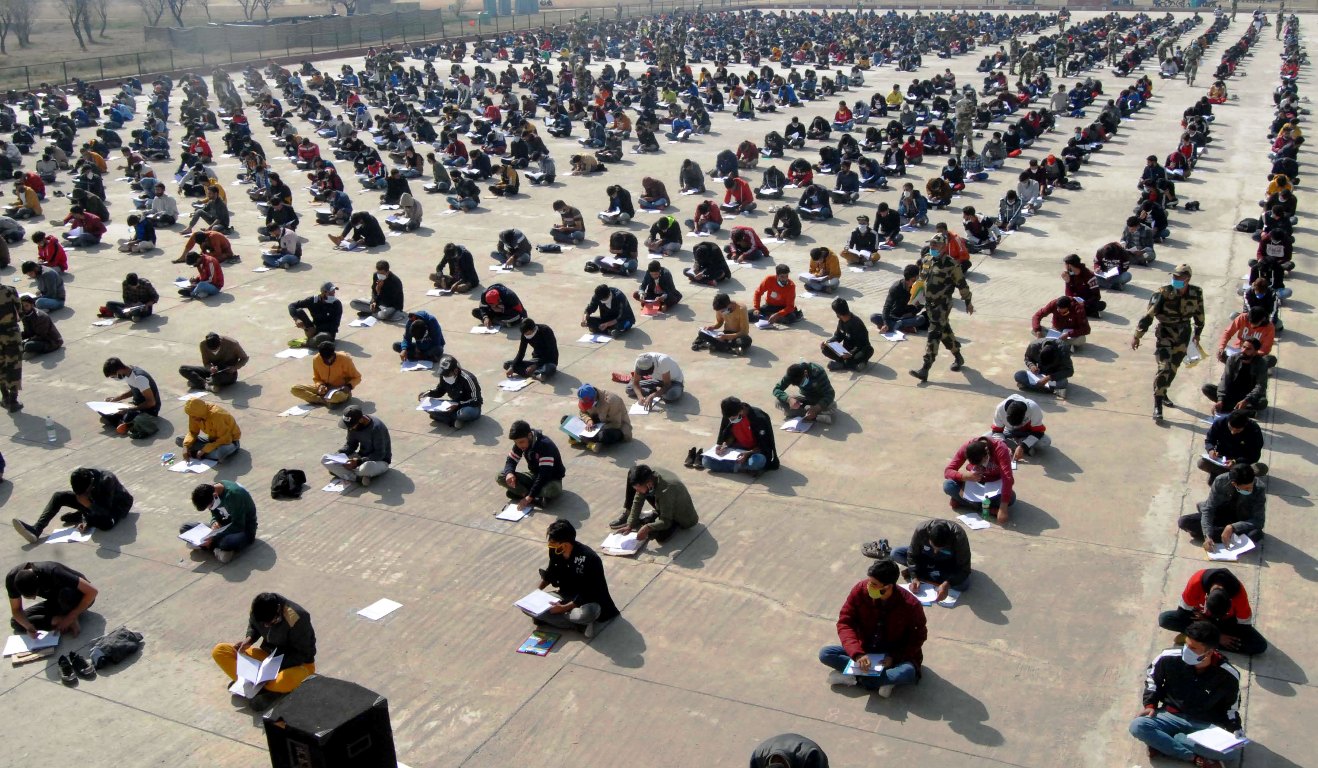
Reservation In Governance
The government has already invoked reservations to divide the institutions of representation including the assembly. The recent development is that the reservation to OBC in Panchayats and Municipalities could vary from eight per cent as the population of the concerned will form the base.
The new interventions are likely to alter the seats of the general category in both Urban and Rural Local Bodies where women have 33 per cent reservations including Women-SC and Women-ST while Scheduled Tribes (STs) have 10 per cent reservations and Scheduled Castes (SCs) eight per cent. It remains to be seen if the seats reserved for Women-SC and Women-ST will be deducted from within 33 per cent quota of females.
OBC reservations are anticipated to be applicable in all rural bodies including the District Development Councils (DDCs), Block Development Councils (BDCs) and Panchayats (both Sarpanch and Panch segments) besides Municipal Corporations, Councils and Committees.
In the Legislative Assembly, STs have 10 per cent and SCs eight per cent reservation. Nine seats in the House of 90 are reserved for STs and seven for SCs. Besides, there has been provision for the nomination of two women, two Kashmir migrants including one woman; and one Pakistan-occupied Jammu Kashmir (PoJK) refugee.















